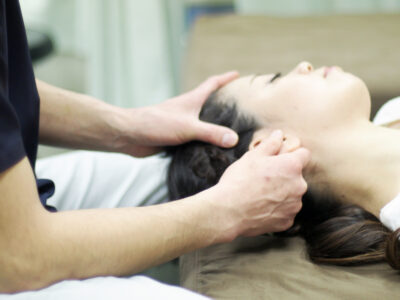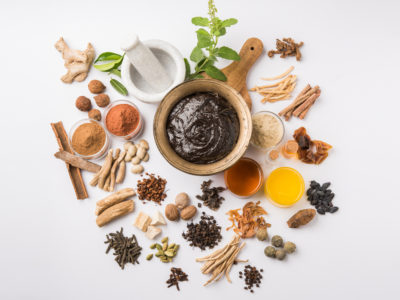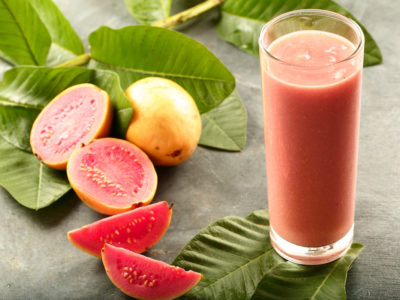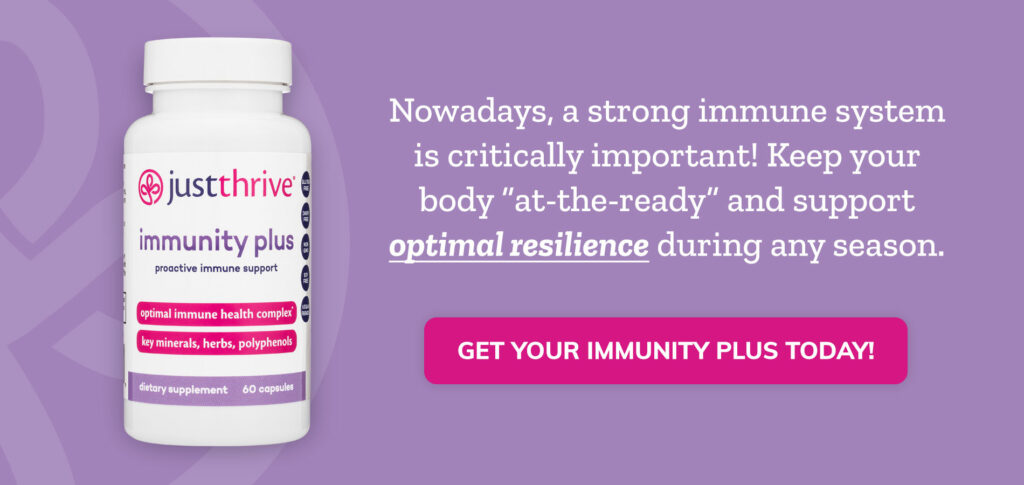Table of Contents[Hide][Show]
- Essential Oil Usage for Health and Well-Being
14 Essential Oil Substitutes For Traditional Medicine+−
- 1. Lavender Essential Oil For Calming Effect
- 2. Lemon Essential Oil For an Immune System Boost
- No Way! Can Massaging Your Ears Help With Weight Loss?
- 3. Lemongrass Essential Oil as an Anti-Inflammatory
- 4. Oregano Essential Oil For Its Antimicrobial Activity
- 5. Eucalyptus Essential Oil For Improved Respiratory Health
- 6. Tea Tree Essential Oil to Fight Bacteria
- 7. Frankincense & Myrrh Oils for Better Oral Health
- 8. Mint Essential Oils For Digestive Issues
- 9. Jasmine Oil to Treat Wounds
- 10. Sandalwood Oil for Alertness and Focus
- 11. Bergamot Oil For Acne
- Best 5 Ayurvedic Herbs For Acne That Really Work
- 12. Rosemary Oil to Strengthen Memory
- 13. German or Roman Chamomile Oil to Help Sleep
- 14. Clary Sage Oil for Menopause Relief
Essential Oil Usage for Health and Well-Being
Despite everything modern science has achieved in the area of Western medicine, the general health of people today is declining. Disease statistics continue to skyrocket as more people than ever before suffer at the hands of serious conditions like coronary artery disease, stroke, and cancer.
It all seems a bit surprising considering our developments in the field of modern medicine and our ever expanding knowledge of how the human body works.
In response to the growing frustration with the inability of Western medicine to prevent or even cure chronic disease, people are increasingly turning to alternative methods to ward off illnesses.
Essential oils are one such alternative. They have been used for millennia to cure ailments and prevent diseases. People have been testifying to the health and therapeutic benefits of popular essential oils and essential oil diffuser blends for a very long time.
It is only now the modern world is beginning to realize their benefits for promoting health and wellness.
What Are Essential Oils?
Essential oils are potent concentrations of plant extracts. They represent the essence of the plant from which they were taken.
This essence is a substance which is many times stronger than the original plant. Therefore, essential oils are a highly concentrated version of the parent plant’s healing properties.
These oils are either extracted via distillation or cold pressing. It’s also possible to extract these oils at home. That’s why many individuals are learning how to make therapeutic essential oils for their own use at home.
The governing principle behind essential oils is they are taken from plants which exhibit certain valuable characteristics, such as antibacterial properties designed to prevent harmful pathogens from attacking their leaves or stems.
Through distillation or cold pressing, these valuable compounds are concentrated into essential oil. People can use the oil through aromatherapy (fragrance oils), direct contact, or even ingestion to promote health and help fight disease.
One of the most popular ways to enjoy them is to use essential oil diffusers. Users even mix oils to achieve a certain smell and effect. All you need is a drop or two in water and you can enjoy a relaxing day or a full night’s sleep, thanks to these oils.
You’ll need to mix an essential oil with a diffusing agent like coconut oil to make it safe to use, if you are making your own though. The strength of these oils can be up to 70 times more potent than the original plant.
Related
10 Best Polyphenol Foods And How To Get Their Full Benefit
Do you know how polyphenol food sources can benefit your health? Let’s take a look at this list of polyphenol foods, how much polyphenols they contain, how to include them in your diet, and more.
14 Essential Oil Substitutes For Traditional Medicine
Healthcare is big money. Essential oils are no exception. Luckily, essential oil manufacturers have put their income to good use by encouraging further scientific analysis of plants and their invigorating healing properties.
Consequently, an extensive body of research exists to support claims that certain essential oils can provide effective replacements for common over-the-counter and prescription medicines. (Talk with your doctor before starting any new health regimen.)
1. Lavender Essential Oil For Calming Effect
Lavender essential oil is arguably one of the most versatile oils available. It has been used by various cultures for thousands of years for a wide range of health problems—from skin care to anxiety relief.
Here are some ideas on how to use lavender essential oil:
- Apply it topically to alleviate skin disorders, minor burns, and insect bites.
- Rub some into scratches and shallow cuts as a disinfectant.
- Use it as aromatherapy to beat stress, reduce anxiety, and promote relaxation.
- Rub some on your pillow or below your nose to help you sleep better.
2. Lemon Essential Oil For an Immune System Boost
Lemon essential oil is a close second to lavender on the usefulness scale. The most popular uses for lemon essential oil are for cleansing the body of toxins, helping stimulate lymphatic drainage, and restoring energy levels.
Studies are beginning to suggest that lemon essential oil may trigger neurological activity which controls the breakdown of body fat, meaning it could be a powerful weight loss tool.
Everyone knows lemon juice in hot water helps soothe sore throats when you have a cold. Lemon essential oil is even more effective—just a couple of drops of this oil in water or tea can banish a sore throat and boost an ailing immune system.
Related
No Way! Can Massaging Your Ears Help With Weight Loss?
Believe it or not, ear acupressure can actually help you shed off some extra weight and make those jeans fit a little looser. Read on to find out.
3. Lemongrass Essential Oil as an Anti-Inflammatory
Lemongrass oil has different benefits from lemon oil. Unlike lemon, lemongrass oil can be used as an effective anti-inflammatory agent to relieve arthritis pain and other chronic inflammatory conditions.
Additional benefits of lemongrass oil include its ability to treat gastric ulcers, which are a common cause of stomach pain, and nausea. It’s most effective against nausea when added to tea or used in aromatherapy.
Other Citrus Oils and Their Benefits
Other useful citrus essential oils include grapefruit oil, lime oil, mandarin oil, and tangerine oil. These oils can help treat acne, promote weight loss, and reduce stress, anxiety, and depression. They can even stop the growth of some bacteria and fungi such as E.coli and staphylococcus (staph infection).
4. Oregano Essential Oil For Its Antimicrobial Activity
Oregano essential oil is a powerful ally to health and a savage enemy to illness, with potent antiseptic, anti-fungal, anti-microbial, anti-parasitic, and anti-inflammatory properties.
It can banish fungal infections and Candida, reduce bruising, sprains, joint pain, tendinitis, and dispel cysts, warts, and herpes.
Oregano essential oil is hot oil, meaning you should always use it with a carrier oil, such as coconut oil or olive oil, to prevent skin irritation.
It’s a wonderful solution for a number of different ailments, so it’s a good idea to have some of this useful item in your medicine cabinet.
5. Eucalyptus Essential Oil For Improved Respiratory Health
Far from being just koala food and a pleasant aroma in saunas, the essential oil of the eucalyptus tree also has a number of health-promoting properties.
Historically, eucalyptus essential oil has helped ease the symptoms of colds and flu, as it helps the body cleanse itself of toxins and harmful microorganisms.
It also aids in clearing blocked sinuses and reducing the symptoms of allergies. When rubbed on the chest it can alleviate asthma, bronchitis, and pneumonia.
6. Tea Tree Essential Oil to Fight Bacteria
Tea tree essential oil is well-known in the health community for its valuable antiseptic properties. You can apply it topically to disinfect shallow wounds and fight fungal infection. When ingested, it can kill bad bacteria and harmful viruses.
Tea tree essential oil has a synergistic effect in the body, helping to prevent the development of antibiotic resistance.
7. Frankincense & Myrrh Oils for Better Oral Health
Frankincense and myrrh are more than just Biblical gifts we hear about at Christmas time. They have real benefits, especially for good dental hygiene.
According to the NIH, frankincense oil can help prevent bad breath, cavities, and mouth sores. This is because it produces boswellic acids that have strong antibacterial properties which can help prevent and treat oral infection.
Myrrh oil also has antimicrobial properties, and it has been used to treat oral infections and inflammation. Some natural toothpastes and mouthwashes contain myrrh oil and studies have shown that myrrh can help treat gingivitis.
8. Mint Essential Oils For Digestive Issues
Mint essential oils, including peppermint/menthol, spearmint, and wintergreen, can be used to address digestive conditions such as irritable bowel syndrome and functional dyspepsia.
These mint oils have been shown to treat these GI issues in studies by reducing abdominal pain and other uncomfortable symptoms. The specific ways these oils help are unknown, but some tested possibilities are that they have an anti-inflammatory effect, and they are able to relax the smooth muscles of the GI tract.
Other benefits of mint oils are that they’re also effective against headaches and the common cold.
9. Jasmine Oil to Treat Wounds
Jasmine oil can have a cicatrizing effect (healing wounds through the formation of scar tissue). It also has antiseptic properties that are helpful for preventing and treating skin infections. Applying diluted jasmine oil can also help heal minor wounds like cuts and scratches faster.
According to a study, jasmine oil is effective at speeding the healing process of wounds like diabetic ulcers. This is because it’s able to enhance wound contraction and increase the formation of new blood vessels.
10. Sandalwood Oil for Alertness and Focus
Sandalwood oil can be used as a caffeine substitute as it may enhance mental alertness. Sandalwood has been shown to activate stimulatory physiological responses as measured by blood pressure and heart rate.
These stimulating effects can help mental functioning and focus, especially when used in aromatherapy.
11. Bergamot Oil For Acne
Bergamot oil contains several anti-bacterial and anti-inflammatory compounds. These properties make bergamot oil an effective acne and skin treatment for those who do not have sensitive skin. It also has analgesic properties that make it a good treatment for cysts or boils.
To use bergamot as an acne treatment you can mix diluted bergamot oil with water or another cleanser to use as a facial rinse. You could also follow these steps:
- Apply bergamot oil mixed with a carrier oil directly to pimples, cysts, and blackheads.
- Leave it on overnight. (Do not use or leave on during the day or in sunlight.)
Related
Best 5 Ayurvedic Herbs For Acne That Really Work
Is acne giving you trouble and none of the regular treatments work? Learn how Ayurveda herbs for acne have been healing skin problems years.
12. Rosemary Oil to Strengthen Memory
There is research that suggests that rosemary oil can improve memory and concentration. This is because inhaling rosemary oil helps prevent the breakdown of acetylcholine, which is a brain chemical crucial to cognitive function.
In one specific study, a group of young adults were asked a series of math questions in a room diffused with rosemary oil. Their speed and accuracy increased during the exact time the oil was diffused.
There is also a study that suggests rosemary oil may also help improve brain function in older adults with dementia, including Alzheimer’s.
13. German or Roman Chamomile Oil to Help Sleep
Chamomile has been associated with getting a good night’s sleep for a long time. Many people drink chamomile tea at night to relax and unwind.
Chamomile’s uses as a sleep remedy are backed up with scientific research too. In one study, a group of elderly people were divided into two groups where one was given a placebo and the other chamomile extract. Results showed a significant increase in sleep quality for the chamomile group.
14. Clary Sage Oil for Menopause Relief
Clary sage oil can be used to relieve symptoms of menopause. This is because clary oil contains sclareol which mimics the effects of estrogen. Research suggests that rubbing diluted clary sage oil on the bottoms of the feet can reduce hot flashes.
How to Use Essential Oils
Essential oils can be a powerful tool in the fight against sickness and disease, but you must use them with caution. This is especially true for pregnant women. Always make sure your intended use for an essential oil is a safe one. Never use essential oils close to the eyes or ears.
To reduce the risk of skin irritation, consider using essential oils mixed with a carrier oil to dilute the essential oil and prevent it from irritating the skin. A good DIY way to do this is by making lotion blends.
Thousands of people from all over the globe attest to the health and therapeutic benefits of essential oils. However, before using any particular essential oil substitutes, make sure you understand the health benefits it can provide.
It is best to ask a health professional if you’re unsure about the best essential oils to use. Your doctor can help prevent any adverse or allergic reactions that could occur when you use essential oils.
You May Also Like…
Editor’s Note: This post was originally published on December 9, 2016, and has been updated for quality and relevancy most recently on April 29, 2021.







